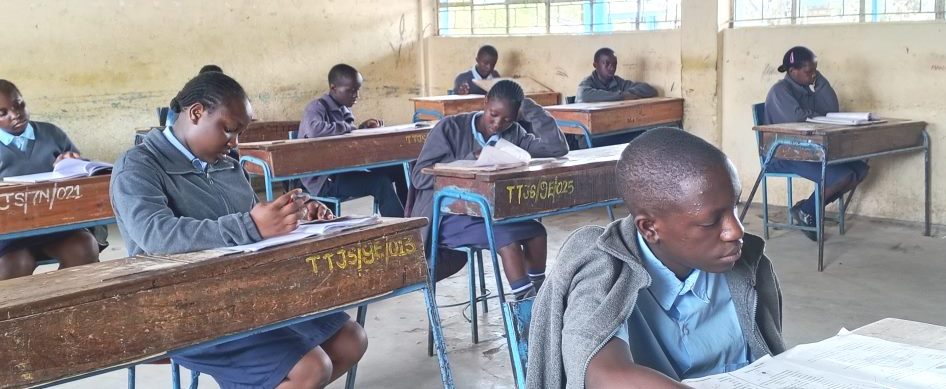In schools across the world, countless teachers quietly nurture brilliance within their classrooms. They mark diligently, deliver engaging lessons and go the extra mile for their students. Yet when staff meetings convene or opportunities for leadership arise, many of these same teachers shrink back, staying silent and hoping their hard work alone will one day earn recognition. It won’t.
The uncomfortable truth is that excellence in the classroom; while vital; is not enough to guarantee leadership roles in education. Schools don’t simply elevate the most hardworking or knowledgeable teachers into leadership; they elevate those who embody visibility, influence and authority. Leadership is not bestowed overnight. It is cultivated long before a title is conferred and the journey begins with posture and presence.
*Beyond subject mastery: The broader demands of leadership.*
Teachers often assume that being the best in their subject or producing the highest exam results automatically signals readiness for leadership.While subject knowledge forms the foundation, it is not the whole building. Leadership demands more: the ability to influence colleagues, to represent ideas with confidence, to make tough decisions and to cast vision.
Think of the staffroom. Every school has at least one teacher whose expertise is unquestionable, yet whose voice is rarely heard beyond the classroom door. Then there is another who, while perhaps less academically brilliant, contributes in meetings, takes ownership of initiatives and builds relationships across departments. When vacancies for leadership emerge, the latter is remembered; not because of superiority in knowledge, but because of demonstrated leadership posture.
*Visibility: Being seen in the right ways.*
In education, visibility is not about ego; it’s about contribution. Too many teachers work tirelessly but invisibly, hoping someone will notice. Unfortunately, leaders cannot notice what they cannot see.
Visibility means speaking up in meetings with thoughtful contributions. It means volunteering for committees, projects, or extra responsibilities that shape the wider school culture. It means being present where school decisions are made, not only where lessons are taught.
To be clear, visibility is not noisy self-promotion. It is the strategic presence of a teacher who chooses to step forward when it matters, ensuring that their insights, commitment and leadership potential are evident to decision makers.
ALSO READ;
*Influence: Shaping people, not just papers.*
Leadership is not about positional power; it’s about relational influence. A teacher aspiring to leadership must ask: Do colleagues seek me out for advice? Do I contribute solutions, or only complaints? Do I encourage others, or merely compete with them?
Influence is cultivated through collaboration, mentorship and initiative. A teacher who guides a new colleague, pilots a fresh idea, or facilitates a productive discussion exerts influence that echoes far
beyond their classroom. Schools are looking for leaders who shape people and culture; not just syllabuses and exam timetables.
*Posture: Carrying yourself like a leader.*
Posture is the invisible quality that communicates authority long before a badge or title does. It is found in how a teacher carries themselves, responds under pressure, or addresses colleagues.
Posture means entering a meeting prepared, speaking with confidence and listening with respect. It means approaching problems not with despair but with solutions. It means showing resilience when others are overwhelmed.
Teachers with leadership posture create a gravitational pull. People listen when they speak and calmness radiates from them even in chaos. Such qualities make decision makers think, This is someone ready for
more responsibility.
*Practical steps for teachers ready to grow.*
Transitioning from silent contributor to visible leader is a journey. Here are actionable ways teachers can begin:
– *Speak up in meetings.* Even brief, thoughtful contributions shift how others perceive you. Silence, however, maintains invisibility.
– *Take ownership of initiatives.* Volunteer to lead a small project or coordinate an event. Demonstrated ownership is one of the clearest signals of leadership readiness.
– *Mentor and support colleagues.* Offering guidance to new teachers or sharing resources positions you as a collaborator and influencer.
– *Build cross department relationships.* Leadership extends beyond your subject area; invest in school-wide partnerships.
– *Develop confidence in communication.* Practice presenting ideas clearly, persuasively, and professionally.
– *Ask for feedback.* Show willingness to grow by inviting senior leaders to give insight into your leadership potential.
– *Demonstrate resilience.* When challenges arise, let your response model composure and problem solving rather than panic.
*The Myth of ‘Waiting to be noticed.’*
Too many teachers still cling to the myth that hard work alone will guarantee recognition. While diligence is essential, schools are complex ecosystems where visibility and influence matter as much as effort.
Leadership opportunities are rarely awarded to those waiting patiently in the shadows. They are claimed by those who step forward, contribute and demonstrate readiness in real time.
If you aspire to leadership, the message is clear: stop waiting to be noticed. Instead, begin embodying the qualities of leadership today, even without a title.
*Conclusion: Leadership before the title.*
Educational leadership is not an event but a process. It begins long before someone becomes Head of Department, Deputy Principal, or Principal. It begins in everyday choices: to speak rather than remain silent, to take ownership rather than shrink back, to influence rather than isolate.
Teachers who understand this truth rise more naturally into leadership when opportunities come. Their posture, visibility and influence have already made the case for them.
So, the next time you find yourself in a staff meeting with an idea on your tongue, remember this: staying silent may keep you safe, but it will never make you significant. Leadership begins the moment you decide to step forward; title or not.
Raphael Ng’ang’a is a teacher of English and Literature at a school in Westlands sub-county.
By Raphael Ng’ang’a
You can also follow our social media pages on Twitter: Education News KE and Facebook: Education News Newspaper for timely updates.
>>> Click here to stay up-to-date with trending regional stories
>>> Click here to read more informed opinions on the country’s education landscape






